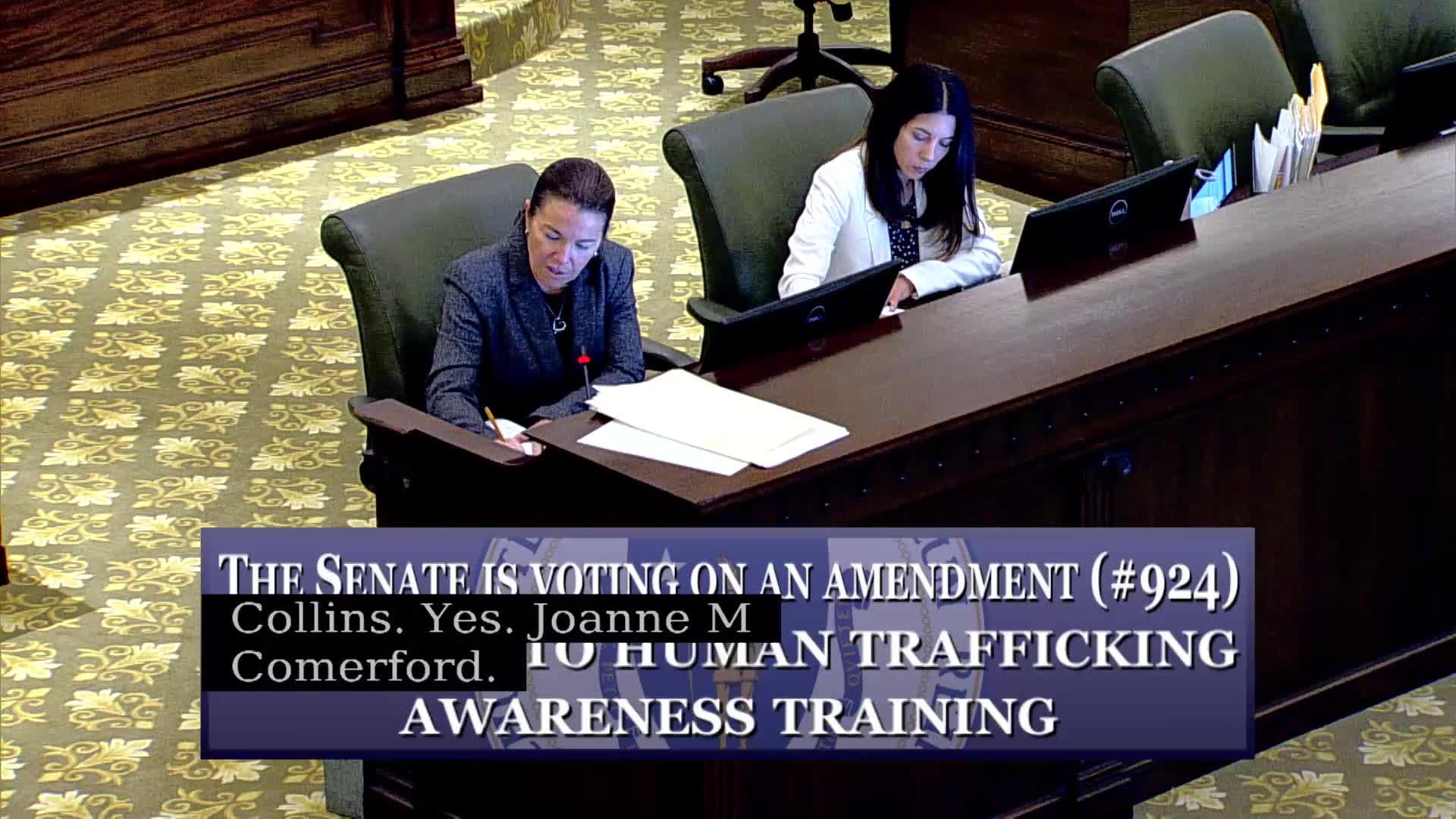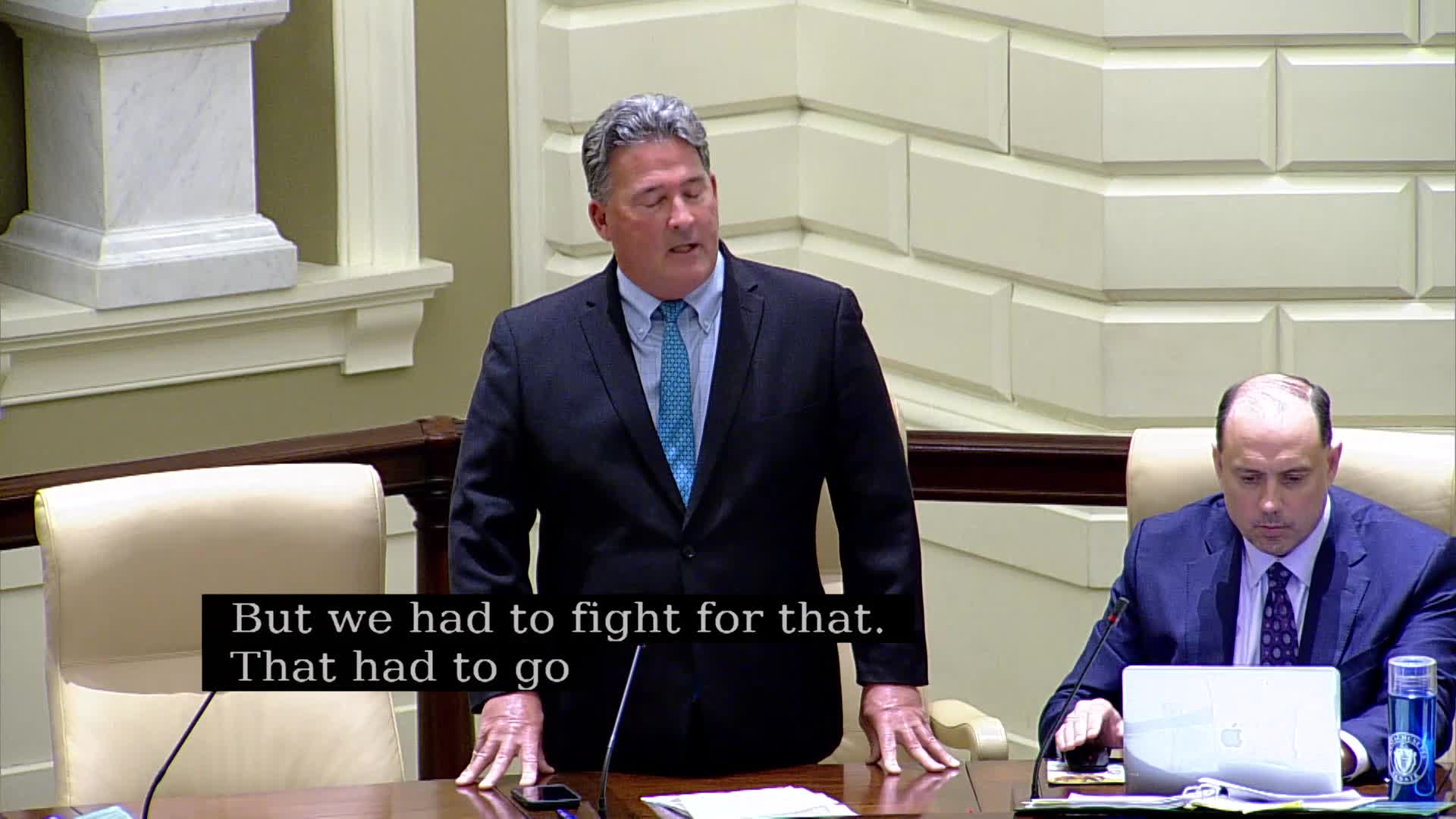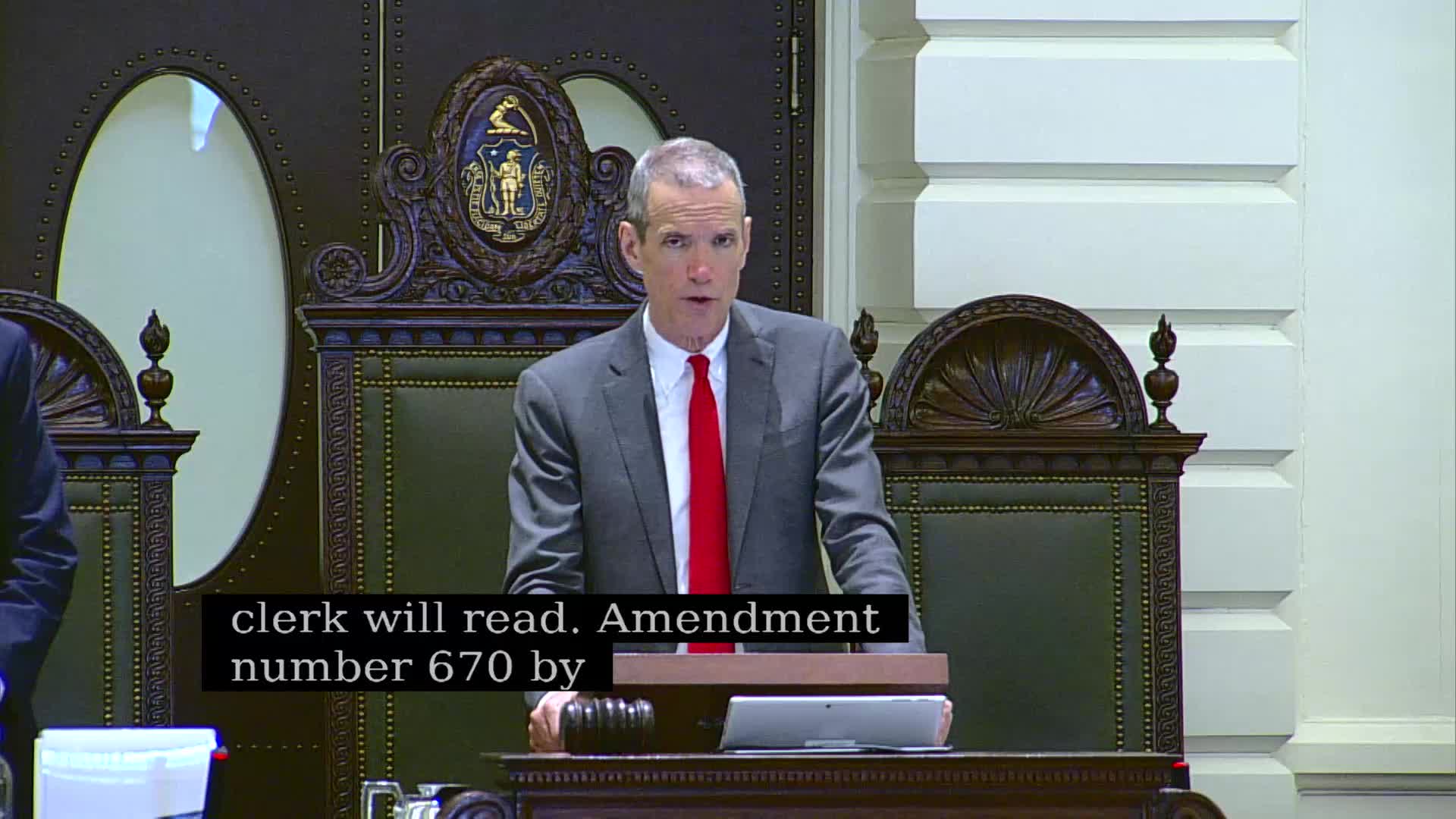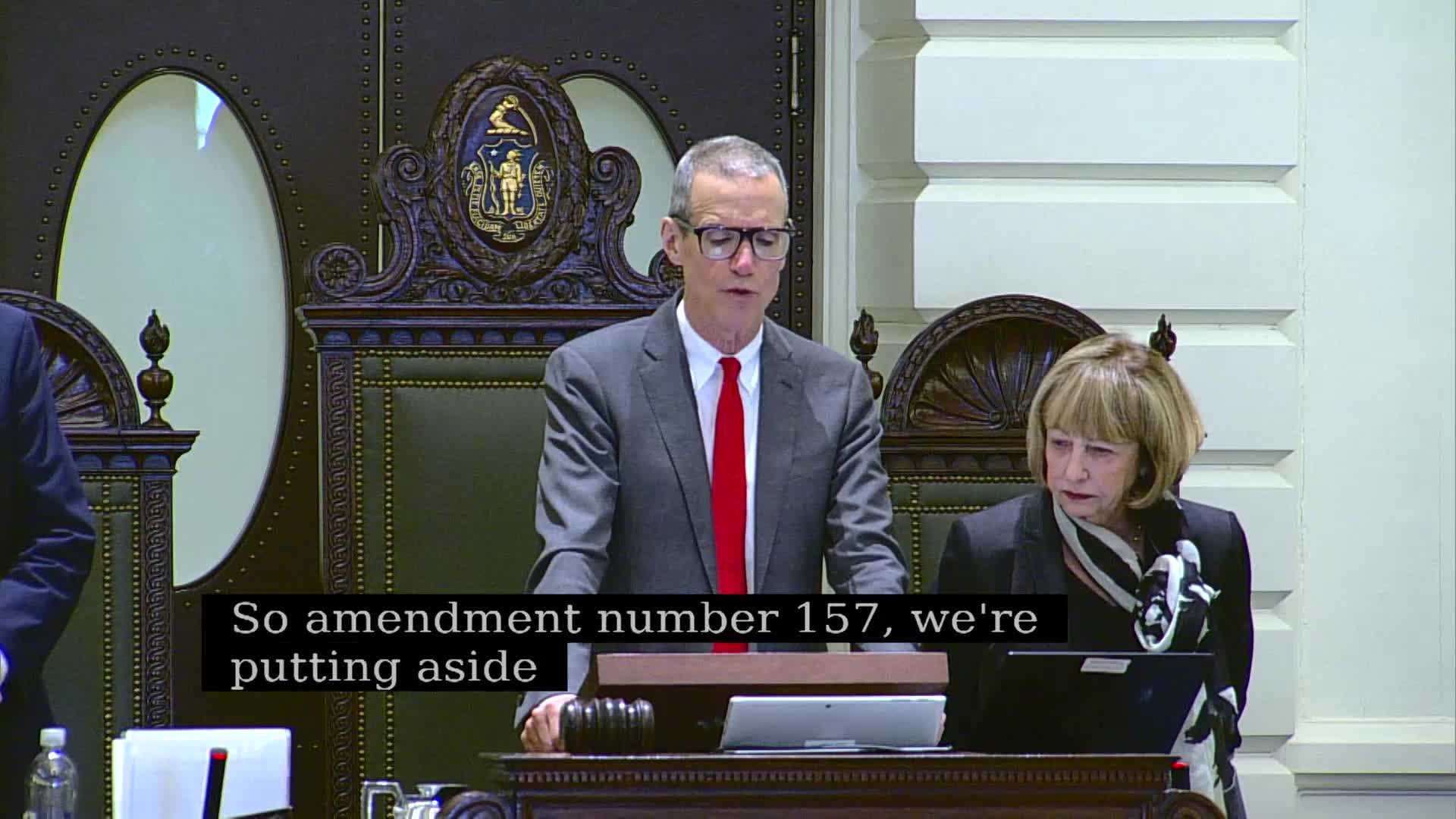Article not found
This article is no longer available. But don't worry—we've gathered other articles that discuss the same topic.

Senate rejects amendment to require hotel and shelter worker training on human trafficking

Senate creates trust within DCR for Castle Island and Old Harbor Reservation

Senator O'Connor proposes raising special‑education circuit breaker to 80%; amendment withdrawn

Senator Friedman withdraws amendment to require commercial insurers to match MassHealth rates for community health centers

